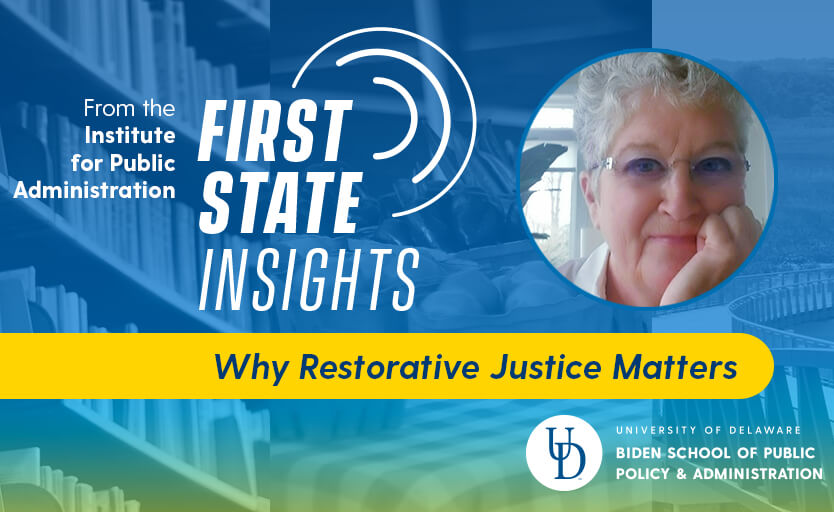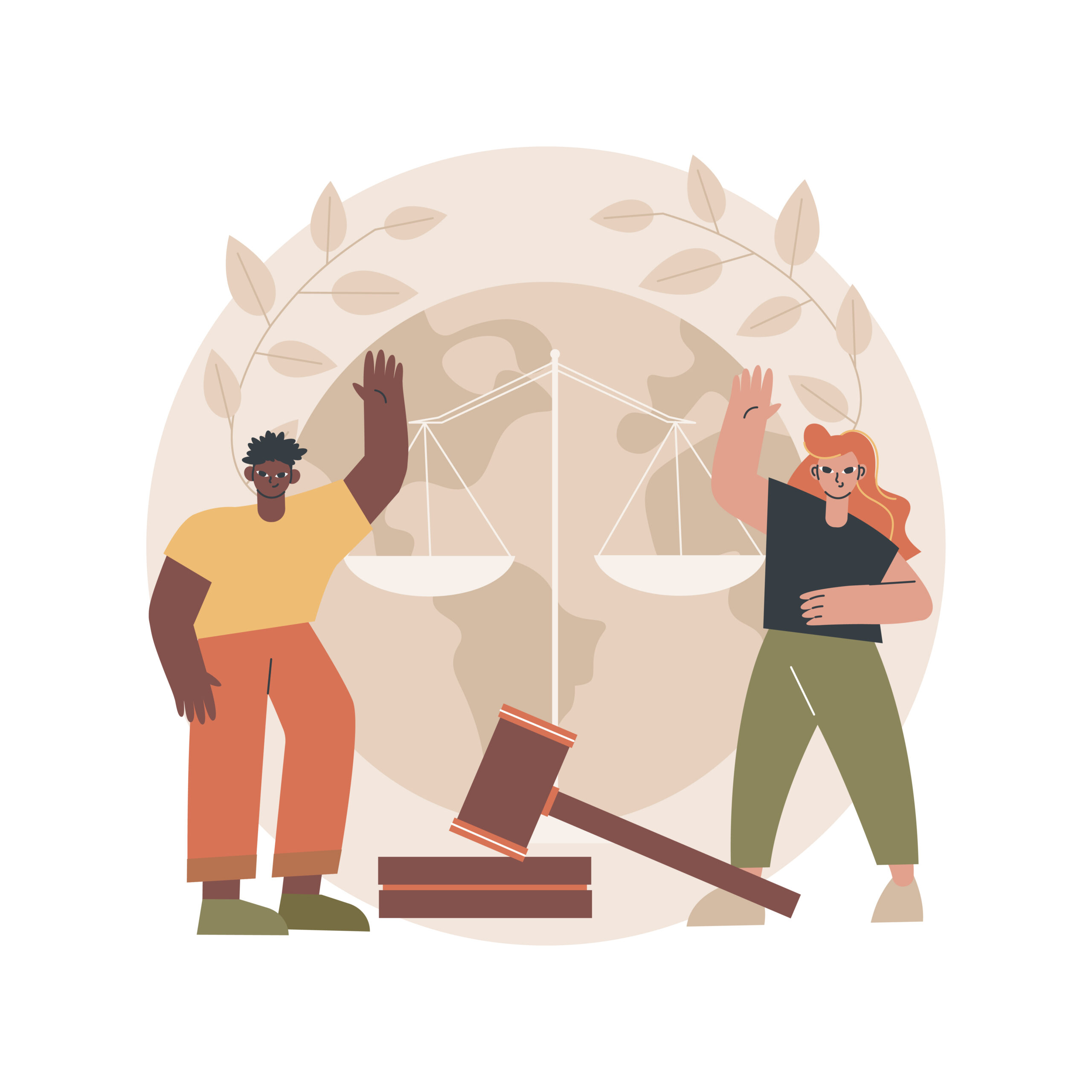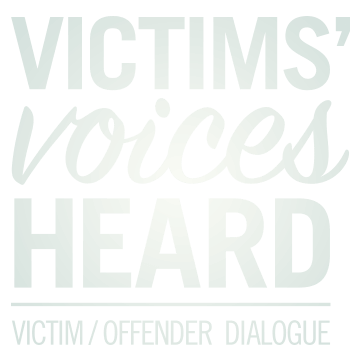Restorative Justice
The dialogue is in large part a transfer of power from offender to victim.
- Crime is a violation of people and/or interpersonal relationships
- Violations create obligations
- The central obligation is to put right the wrongs
Discover Our Podcast

Kim Book, Founder and Executive Director of the nonprofit Victims’ Voices Heard, speaks with Danielle Vota and Ruth Decosse, conflict resolution practitioners at the University of Delaware's Institute for Public Administration (IPA), about why restorative justice matters.
How should our society address acts of wrongdoing? When a crime or injustice takes place, what steps must be taken? What is the necessary response to fulfill the demands of justice?
While the concept of "restorative justice" includes diverse programs and methods, its essence lies in a collection of principles, a philosophy, and an alternative set of guiding inquiries. Essentially, restorative justice offers an alternative perspective on how to address misconduct.
The restorative justice movement initially emerged as an attempt to reevaluate the consequences of criminal actions. It essentially revolves around a series of questions that should be posed in response to wrongdoing.
How should we engage relevant parties in a procedure aimed at rectifying the situation?
Restorative justice broadens the group of individuals with vested interests in the situation or case, extending beyond the government and the wrongdoer to encompass victims and community members.
Our Program is an Opportunity
The difference between Criminal Justice and Restorative Justice

Criminal Justice
- Crime is a violation of the law and the state
- Violations create guilt
- Justice requires the state to determine blame (guilt) and impose pain (punishment)
- Central focus: offenders getting what they "deserve"

Restorative Justice
- Crime is a violation of people and relationships
- Violations create obligations
- Justice involves victims, offenders and community members in an effort to put things right
- Central focus: victim needs and offender responsibility for repairing harm
